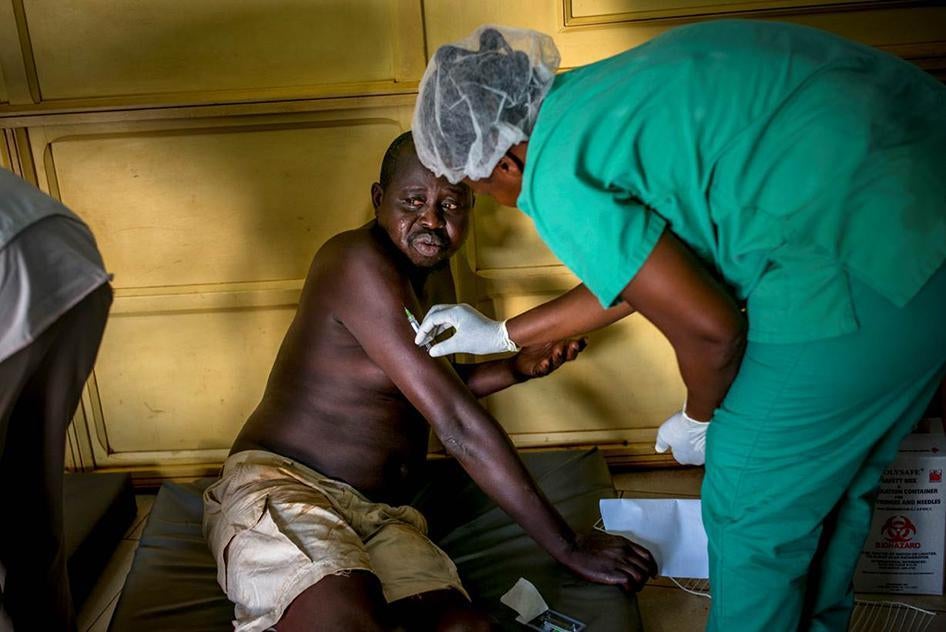This week, the streets of Bangui, the capital of the Central African Republic, were littered with dead bodies. According to the latest reports, over 40 people have been killed since September 26, hundreds have been injured, and over 40,000 people have fled their homes to displacement sites, many at the international airport, in a desperate attempt to find safety. The offices of humanitarian organizations have been attacked and looted, hampering the urgent assistance that many need.
The violence is a stark reminder of how volatile the situation remains in this war-torn country, and it should put policy makers on high alert. They will need to re-double their efforts to ensure the country does not slide back into the abyss.
The recent violence was sparked by the killing of a Muslim, a motorcycle taxi driver. The murder was reminiscent of previous brutal killings in 2013 and 2014 that had driven over 400,000 Muslims out of the country. A few thousand Muslims who have remained in the capital in the neighborhood of Kilo 5, essentially an enclave in the city, were quick to react. They attacked Christians and others, and the violence escalated into tit-for-tat revenge killings, shattering the fragile peace that Bangui has enjoyed for the past year. United Nations peacekeepers stationed in Bangui were unable to stop the killings.
The renewed violence in Bangui, while sudden, should not come as a total surprise. For those looking at events outside the capital, in the areas to the east, it was clear the risk remains high. In and around the towns of Bambari, Bouca, Batangafo, and Kaga Bandoro, fighting between the Muslim Seleka rebels and the predominately Christian anti-balaka fighters has continued with a devastating toll on civilians.
In my recent trips to the area, I have documented the deaths of hundreds of people over the past year and the burning and destruction of thousands of homes. Tens of thousands are displaced and trying desperately to survive in the arid bush or in displacement camps with little or no access to humanitarian aid. Many are dying. In these areas, it was clear that there was no peace.
For the violence and the attacks on civilians to stop, those responsible for the grave human rights violations need to be held to account. The interim government took the bold step of establishing a Special Criminal Court in June. It urgently needs financial and technical support to become a reality. Donors and international policy makers should make this one of their first steps to avert a recurrence of the latest attacks on civilians. Without tackling the impunity that has been so common in the Central African Republic, the likelihood of more deaths is only a matter of time.









